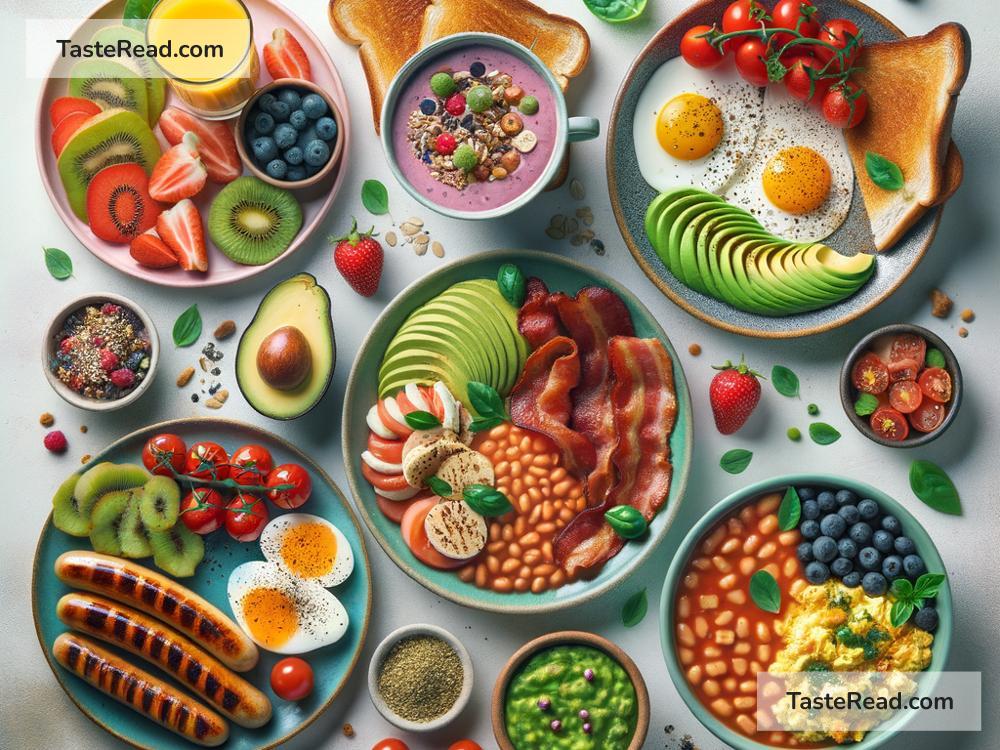Exploring the Evolution of Breakfast in Modern Cuisine
Breakfast, the first meal of the day, has always held a special place in people’s daily routines and cultures across the world. But like everything, breakfast has evolved over time. Let’s explore how breakfast has transformed in modern cuisine, adapting to changes in society, technology, and dietary preferences.
The Traditional Breakfast
Traditionally, breakfast varied greatly depending on where you were in the world. For instance, in many Western countries, it wasn’t uncommon to have a hearty breakfast that included eggs, bacon, and toast. This kind of breakfast gave people the energy they needed for a day of hard work, especially in more physically demanding times.
In contrast, other parts of the world leaned towards lighter or very different breakfasts. In Japan, for example, a traditional breakfast might include rice, fish, and miso soup, offering a well-balanced start to the day without weighing one down.
Change Sparks Up
As societies evolved, breakfast began to change. Urbanization, the movement of people to cities for work, played a significant role. Busy city life meant that people had less time in the morning, prompting a shift towards quicker, more convenient breakfast options. Enter the era of breakfast cereals, toast, and instant oatmeal.
Technology, too, made its mark. Refrigeration and improved transportation meant that people had access to a wider variety of foods all year round, making breakfast more interesting and diverse.
Health and Wellness Influence
In recent years, there has been a significant shift towards health and wellness, and breakfast hasn’t been left behind. Many now view breakfast as the most important meal, pivotal in boosting metabolism and providing energy for the day. This has ushered in a wave of health-conscious breakfast foods like smoothie bowls, avocado toast, and quinoa porridge. Foods that are high in protein, fiber, and good fats are in, while sugary cereals and pastries are increasingly seen as occasional treats rather than breakfast staples.
Global Fusion
Globalization has also played a vital role in the evolution of breakfast in modern cuisine. With cultures intertwining more closely than ever, breakfast menus now feature an eclectic mix of global influences. It’s not unusual to find breakfast burritos in Tokyo or shakshuka in New York. The modern breakfast table is a vibrant tapestry of global cuisines, reflecting the melting pot of today’s societies.
Sustainability and Ethical Eating
Another significant aspect of the evolution of breakfast is the growing emphasis on sustainability and ethical eating. People are more conscious about where their food comes from and its impact on the environment. This has led to a rise in plant-based breakfast options and meals made from locally sourced ingredients. Urban gardens, farm-to-table restaurants, and organic produce have become part of the conversation, influencing not just what we eat for breakfast but how we think about food in general.
The Role of Technology and Social Media
Technology and social media have also transformed breakfast, but in ways beyond just food preparation and preservation. Instagram and other social media platforms have turned breakfast into an opportunity for aesthetic expression. Colorful smoothie bowls, artfully arranged avocado toasts, and picture-perfect pancakes flood our feeds, pushing the boundaries of creativity in breakfast foods.
Moreover, technology has made it easier for people to share recipes and food experiences from around the world, making exotic breakfast dishes more accessible and inspiring people to experiment with new ingredients and flavors.
Looking Ahead
As we look to the future, it’s clear that breakfast will continue to evolve, mirroring shifts in society, advancements in technology, and changing dietary trends. Personalization might play a bigger role, with technology providing customized meal suggestions based on our health needs and taste preferences.
Sustainability and ethical considerations will likely continue shaping what and how we eat in the mornings. And as the world becomes even more interconnected, the fusion of global cuisines at the breakfast table will enrich our culinary experiences further.
Conclusion
The evolution of breakfast in modern cuisine reflects broader societal changes, highlighting our journey towards convenience, health awareness, sustainability, and global interconnectedness. As breakfast continues to evolve, it will undoubtedly remain an essential, if ever-changing, start to our day.


